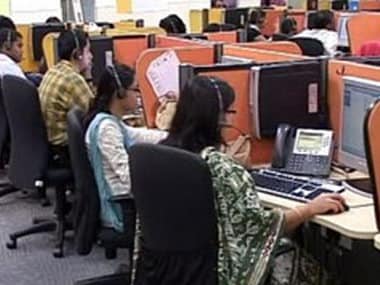New Delhi: According to sources, the central government has proposed around ten model migration support centres across the country after studying the exodus pattern from villages to the big cities. These support centres will screen and mobilise migrants for relevant training, so that they can be imparted skills which would enable them to keep pace with rapid growth in technology and changes in demography. Documents reviewed by Firstpost show that in order to meet the target of creating two million jobs, the states will be required to enhance the capacity of training centres and add more projects for the placement of trained people. The plan is also focused on empowering vulnerable sections of society. Sources said that Bihar, which is led by Nitish Kumar, tops the list of states that could not utilise the central funds released in the last two years meant for training and placement of rural youth, followed by Andhra Pradesh. While former Andhra Pradesh chief minister Chandrababu Naidu had attacked the first Modi-led government over unemployment, he was sitting on central funds to the tune of Rs 180 crore for job creation. [caption id=“attachment_6872281” align=“alignleft” width=“380”]  Representational image. News18[/caption] Four other states which have left a significant amount of central funds unspent are Karnataka, Odisha, West Bengal and Jammu and Kashmir. The HD Kumaraswamy-led Karnataka government is sitting on Rs 137 crore released by the Centre, while the Mamata Banerjee-led West Bengal government has failed to utilise Rs 108 crore. Banerjee, too, had attacked the Modi government over unemployment during the Lok Sabha election campaign. However, West Bengal could train only 14,500 youth in the last three years, documents show. “States have been asked to launch new projects to target gram panchayats and identify potential candidates. The gram panchayats will prepare a list of candidates who can be imparted suitable training. Subsequently, placement cells in the districts will coordinate with industries,” a source said. Execution of projects to impart training and provide employment to youth has been slow due to the indifferent attitude of the local machinery. While 8.2 lakh individuals were trained, only 5 lakh received job offers. The top ten sectors where rural youths were trained included sales, garment industry, hospitality, food and beverages, etc. States like Tamil Nadu and Telangana have made progress in rural job creation by ensuring at least 75 percent placement of trained youths. These two states, with the help of support at the block level, have employed better strategies to identify rural youths for skill training programmes. The government estimates that existing job roles in the hinterland will change in the next three years, and at least 29 crore people involved in the informal sector will require re-skilling. That is why the focus is also on rural self-employment training institutes across the country, and extending credit-linked subsidy programmes. Prime Minister Narendra Modi has constituted a cabinet committee on employment and skill development. The committee has to suggest measures to increase wage earning capacity in urban and rural employment. In the last one year, around 3 lakh rural youth were provided with training and self-employment, and this year, the target is about 4 lakh youths. Under the existing scheme, the government is providing Rs 25 lakh to semi-literate individuals above 18 years of age to set up self-employment units in the manufacturing sector, and Rs 10 lakh for those planning a venture in the service sector. Around 27 public sector banks and 56 regional rural banks, which have more than 14,000 branches across the country, are assisting the government’s plan. The role of the not-for-profit company National Skill Development Corporation (NSDC), a public-private partnership company in which the government has 49 percent stake, has been strengthened to cater to both the urban and rural sectors. The NSDC, with over 8,500 training centres focused on 21 sectors, will play a major role in assisting schemes to generate quality jobs. The government is planning to promote individual and group-based enterprises under the non-farm sector to generate employment through centrally aided programmes. Out of the total target, 6.37 lakh candidates are from Scheduled Castes, 3.2 lakh from Scheduled Tribes, 2.89 lakh from minority communities and 6.5 lakh women candidates will be trained for placement in different sectors. The state governments have been asked to organise regular meetings with sector-specific industries every month, and in case potential employers wish to supervise the training batches in any particular region, they are to be allowed by the authorities.
Execution of projects to impart training and provide employment to youth has been slow due to the indifferent attitude of the local machinery.
Advertisement
End of Article


)

)
)
)
)
)
)
)
)



